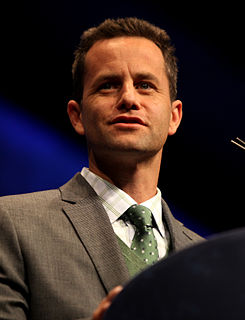A Quote by J. Frank Norris
Whenever you find a preacher who takes the Bible allegorically and figuratively...that preacher is preaching an allegorical gospel which is no gospel. I thank God for a literal Christ, for a literal salvation. There is literal sorrow, literal death, literal Hell, and, thank God, there is a literal Heaven.
Related Quotes
And Christ was born into the world as the literal Son of this Holy Being; he was born in the same personal, real, and literal sense that any mortal son is born to a mortal father. There is nothing figurative about his paternity; he was begotten, conceived and born in the normal and natural course of events, for he is the Son of God, and that designation means what it says.
Theologians will protest that the story of Abraham sacrificing Issac should not be taken as literal fact. And the appropriate response is twofold: first, many, many people even to this day, do take the whole of their Scripture to be literal fact, and they have a great deal of political power over the rest of us, especially in the United States and in the Islamic world. Second, if not of literal fact, how should we take the story? As an alagory? Then an alagory for what? Surely, nothing praiseworthy. As a moral lesson? But what kind of morals could one derive from this appalling story?
Compulsion in the literal Sense is maliciously misrepresented, by supposing it authorizes Violences committed against the Truth. The Answer to this; by which it is prov'd, that the literal Sense does in reality authorize the stirring up Persecutions against the Cause of Truth, and that an erroneous Conscience has the same Rights as an enlighten'd Conscience.
Just as the introduction of the irrational numbers ... is a convenient myth [which] simplifies the laws of arithmetic ... so physical objects are postulated entities which round out and simplify our account of the flux of existence... The conceptional scheme of physical objects is [likewise] a convenient myth, simpler than the literal truth and yet containing that literal truth as a scattered part.
Just as there exists in writing a literal truth and a poetic truth, there also exists in a human being a literal anatomy and a poetic anatomy. One, you can see; one, you cannot. One is made of bones and teeth and flesh; the other is made of energy and memory and faith. But they are both equally true.
The term "globalization," like most terms of public discourse, has two meanings: its literal meaning, and a technical sense used for doctrinal purposes. In its literal sense, "globalization" means international integration. Its strongest proponents since its origins have been the workers movements and the left , which is why unions are called "internationals", and the strongest proponents today are those who meet annually in the World Social Forum and its many regional offshoots.































